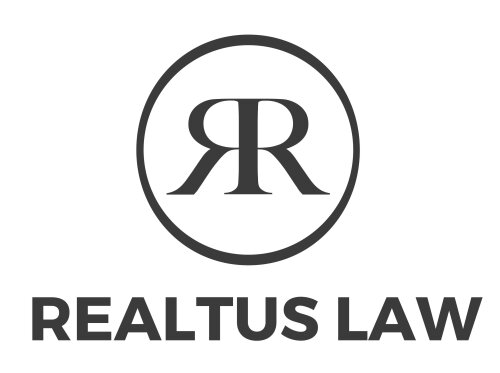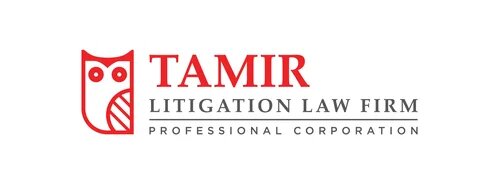Best Agriculture Lawyers in Richmond Hill
Share your needs with us, get contacted by law firms.
Free. Takes 2 min.
List of the best lawyers in Richmond Hill, Canada
About Agriculture Law in Richmond Hill, Canada
Agriculture in Richmond Hill, Ontario, is part of the broader agricultural sector of the York Region and the province of Ontario. While Richmond Hill is primarily a suburban and urban community, there are surrounding rural areas and land-use zones dedicated to farming, horticulture, and agri-businesses. Agriculture law in this context refers to the set of regulations, policies, and legal issues concerning the use of land for farming, crop and livestock production, environmental protection, food safety, and farm property management. These laws ensure the sustainability of agricultural practices, the safety of food, and the protection of both landowners' and public interests.
Why You May Need a Lawyer
Several situations may require you to seek legal advice in the field of agriculture in Richmond Hill:
- Purchasing, selling, or leasing farmland or rural property
- Land use disputes, such as zoning, by-law enforcement, or trespass issues
- Succession planning and inheritance of agricultural property
- Environmental regulations regarding pesticides, water usage, and soil conservation
- Issues with agricultural subsidies or government support programs
- Contracts for supply agreements, farm equipment, or distribution of produce
- Compliance with food safety standards and regulations
- Dealing with neighbour disputes related to farm operations or animal noise
- Personal or worker injury claims and workplace safety compliance
- Immigration matters for seasonal or foreign agricultural workers
Local Laws Overview
In Richmond Hill and the broader York Region, several key legal frameworks impact agriculture:
- Zoning By-laws and Official Plans: Local zoning laws designate where agricultural activities can take place and may restrict certain operations to protect residential areas or the environment.
- Provincial Acts: The Farming and Food Production Protection Act (FFPPA) protects normal farm practices from certain nuisance complaints. The Ontario Pesticides Act, Clean Water Act, and Environmental Protection Act set standards for chemical use and environmental stewardship.
- Food Safety: Both the Canadian Food Inspection Agency (CFIA) and the Ontario Ministry of Agriculture, Food and Rural Affairs (OMAFRA) regulate the production, processing, and sale of food items.
- Land Use Planning: Agricultural lands are influenced by the Greenbelt Plan and the Oak Ridges Moraine Conservation Plan to preserve natural heritage and farmland.
- Labour Laws: Farmers must comply with the Ontario Employment Standards Act and any rules for hiring local or foreign agricultural workers.
- Municipal By-laws: These may cover issues like noise, animal control, and local licensing for on-farm businesses.
Frequently Asked Questions
What activities are considered "agriculture" under local law?
Agricultural activities generally include the growing of crops, raising livestock, horticulture, beekeeping, aquaculture, and associated on-farm processing, storage, and retail. The exact definition can depend on municipal zoning by-laws.
Can I start farming on a property in Richmond Hill?
It depends on the zoning of the property. You must check with the Town of Richmond Hill’s Planning Department to determine if your intended use is permitted.
What rules exist for pesticide and chemical use?
Pesticide use is strictly regulated by the Ontario Pesticides Act and by federal law. Only licensed individuals may apply certain chemicals, and record-keeping is mandatory.
Are there any restrictions on keeping animals?
Yes. The keeping of livestock or poultry is often restricted to properties zoned for agriculture or rural use. There may also be limits on the number and type of animals.
What protections exist for farmers against nuisance complaints?
The Farming and Food Production Protection Act (FFPPA) protects farmers using “normal farm practices” from certain types of nuisance lawsuits, such as complaints about noise or odours, provided all regulations are followed.
Do I need special permits to sell farm products?
Direct-to-consumer sales of farm products often do not require special permits, but processed foods, dairy, or meat sales are heavily regulated. Health and safety standards must always be met.
What should I know about water use for farming?
Large-scale water taking for irrigation may require a permit from the Ontario Ministry of the Environment, Conservation and Parks. Farmers must avoid contaminating water sources.
How do inheritance and succession laws apply to farm properties?
Agricultural property is subject to the same succession laws as other real estate, but tax rules (such as the capital gains exemption for farm properties) can provide significant benefits to farming families. Legal advice is crucial for succession planning.
Are there government grants or financial programs for farmers?
Yes. The federal and provincial governments offer a range of grants, subsidies, and insurance programs for farmers. OMAFRA and Agriculture and Agri-Food Canada are the primary sources for these programs.
What workplace safety rules apply on farms?
Most farms must comply with the Ontario Occupational Health and Safety Act, which sets out requirements for worker safety, training, and accident prevention.
Additional Resources
- Ontario Ministry of Agriculture, Food and Rural Affairs (OMAFRA)
- Canadian Food Inspection Agency (CFIA)
- York Region Agricultural Advisory Liaison Group
- Farm & Food Care Ontario
- Ontario Federation of Agriculture (OFA)
- Agriculture and Agri-Food Canada
- Richmond Hill Planning and Building Department
- Local law libraries and community legal clinics
Next Steps
If you need legal assistance related to agriculture in Richmond Hill, begin by defining your specific issue (such as property, business, or regulatory concerns). Gather all relevant documents and records. Consider contacting local legal clinics, consulting with an agriculture-focused law firm, or reaching out to organizations like OMAFRA or the Ontario Federation of Agriculture for guidance and referrals. Arrange an initial consultation with a qualified lawyer who has experience in agricultural law in Ontario. They can help clarify your rights, outline your options, and assist with any transactions, disputes, or regulatory matters.
Remember, early legal advice can prevent costly mistakes, ensure compliance with all local and provincial laws, and help you protect your land, business, and family interests.
Lawzana helps you find the best lawyers and law firms in Richmond Hill through a curated and pre-screened list of qualified legal professionals. Our platform offers rankings and detailed profiles of attorneys and law firms, allowing you to compare based on practice areas, including Agriculture, experience, and client feedback.
Each profile includes a description of the firm's areas of practice, client reviews, team members and partners, year of establishment, spoken languages, office locations, contact information, social media presence, and any published articles or resources. Most firms on our platform speak English and are experienced in both local and international legal matters.
Get a quote from top-rated law firms in Richmond Hill, Canada — quickly, securely, and without unnecessary hassle.
Disclaimer:
The information provided on this page is for general informational purposes only and does not constitute legal advice. While we strive to ensure the accuracy and relevance of the content, legal information may change over time, and interpretations of the law can vary. You should always consult with a qualified legal professional for advice specific to your situation.
We disclaim all liability for actions taken or not taken based on the content of this page. If you believe any information is incorrect or outdated, please contact us, and we will review and update it where appropriate.









